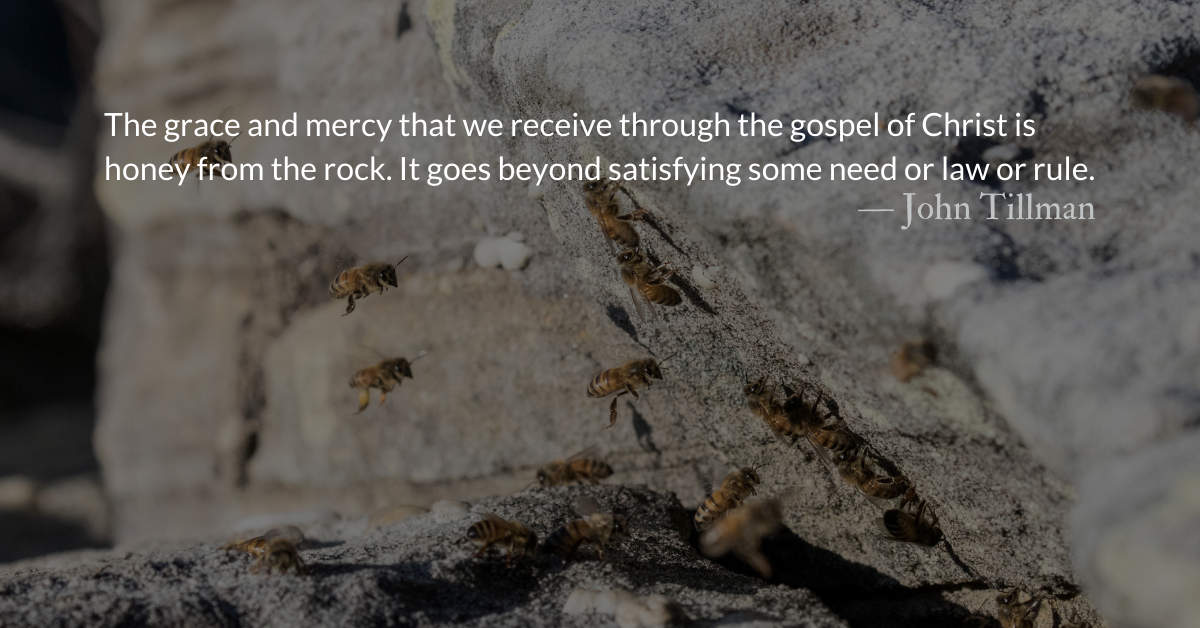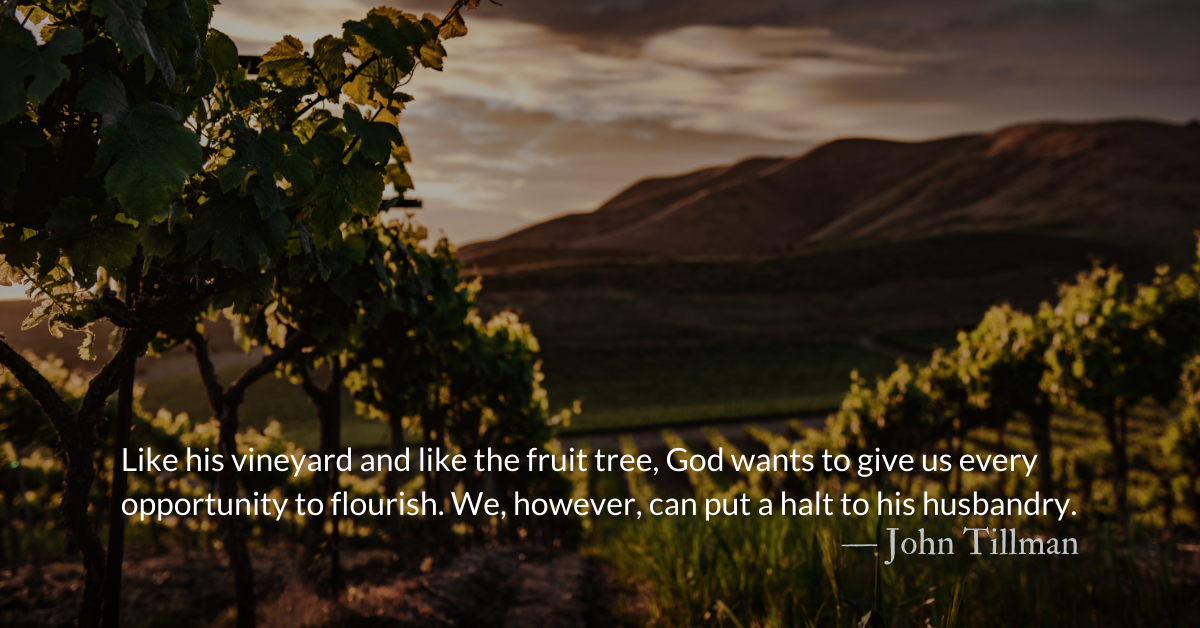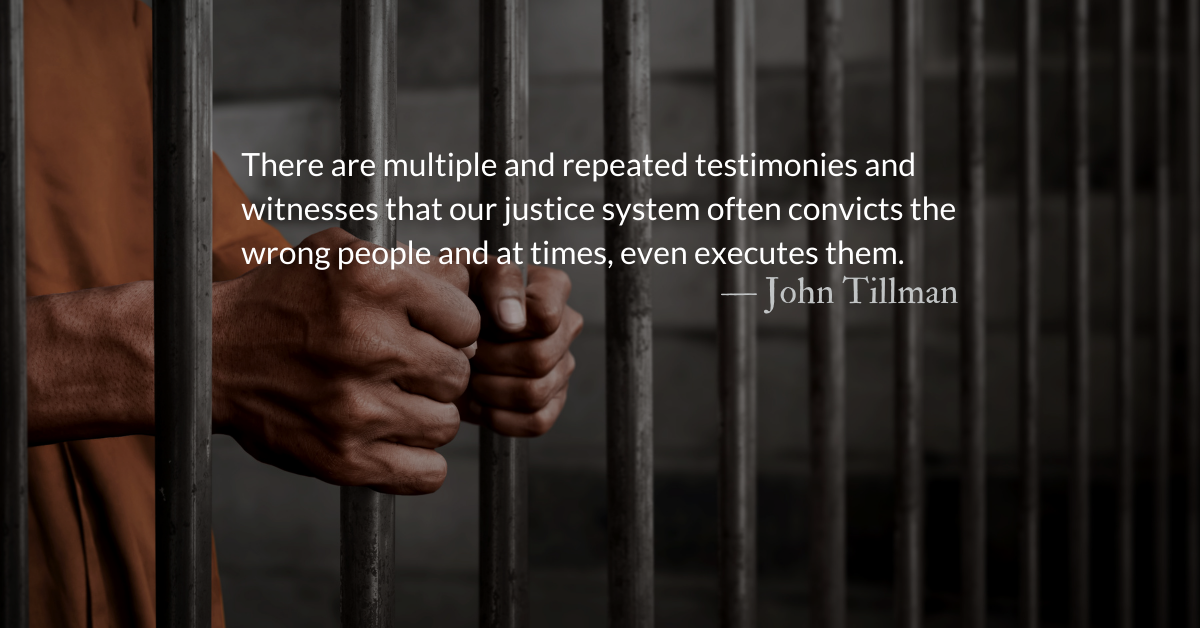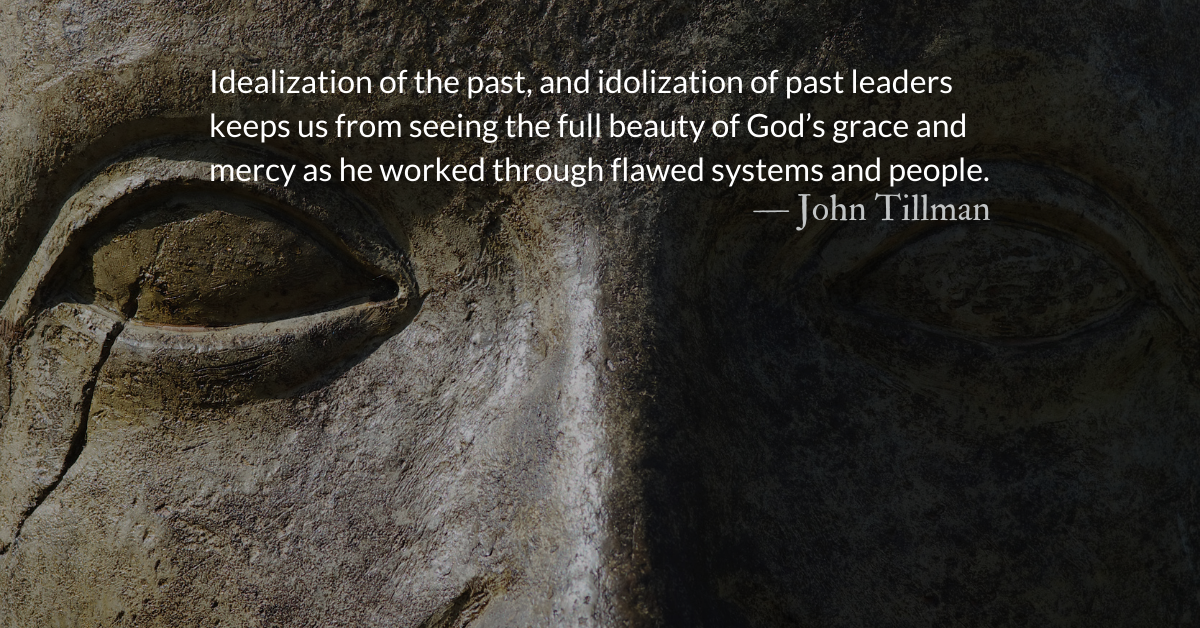Scripture Focus:
Psalm 81.16
But he would feed you with the finest of the wheat,
and with honey from the rock I would satisfy you.
Reflection: Honey and Grace
By John Tillman
The honey from the rock in Psalm 81 is an image of God’s provision. Asaph is making reference to similar imagery in the Song of Moses recorded in Deuteronomy. This is the song Moses sings to the people right before his death as he passes leadership to Joshua. In the Psalm, Moses uses the image of honey from the rock to describe God’s provision for Jacob and metaphorically for Israel in their desert journey which has come to an end.
In Charles Spurgeon’s commentary on Psalm 81, he notes that, “God extracts honey out of the rock—the sweetest springs and pleasures from the hardness of afflictions; from mount Calvary and the cross, the blessings that give greatest delight; whereas the world makes from the fountains of pleasure stones and rocks of torment.”
Puritan pastor, Thomas Wilcox, also takes the image of Christ the Rock and combines it with the imagery in Psalm 81:
“If ever you saw Christ, you saw him as a Rock, higher than self-righteousness, Satan, and sin, and this Rock follows you; and there will be continual dropping of honey and grace out of that Rock to satisfy you. Examine if ever you have beheld Christ as the only begotten of the Father, full of grace and truth. Be sure you have come to Christ, that you stand upon the Rock of Ages, and have answered His call to your soul, and have closed with Him for justification.”
The rock implies our suffering and our sojourn, but it also implies a sure foundation of Christ on which we may stand. Honey from the rock is an image of extravagance brought out of scarcity. Honey is a treat, an extra. It provides energy and health, but it, chiefly, is pleasurable and even indulgent.
The grace and mercy that we receive through the gospel of Christ is honey from the rock. It goes beyond satisfying some need or law or rule. Christ pours out, upon those who follow him, extravagant grace that goes beyond a dry court ruling of “not guilty.” It is the passionate, running embrace of a father receiving back a son from the dead.
Seek for Jesus in your pain, in your desert, in your struggle, for it is only from him that you can receive, not just sustenance, but honey from the rock.
Divine Hours Prayer: The Refrain for the Morning Lessons
Everyone will stand in awe and declare God’s deeds; they will recognize his works. — Psalm 64.9
– Divine Hours prayers from The Divine Hours: Prayers for Springtime by Phyllis Tickle
Today’s Readings
Deuteronomy 1 (Listen – 6:27)
Psalm 81-82 (Listen – 2:36)
This Weekend’s Readings
Deuteronomy 2 (Listen – 5:06), Psalm 83-84 (Listen – 3:20)
Deuteronomy 3 (Listen – 4:33), Psalm 85 (Listen – 1:25)
Read more about Too Good Not to Be True
“The preacher is apt to preach the gospel with the high magic taken out, the deep mystery reduced to a manageable size.” — Frederick Buechner
Read more about The Ram and the Cornerstone
May we not reject the stone of suffering, of sacrifice, of self-control, or of truth.











